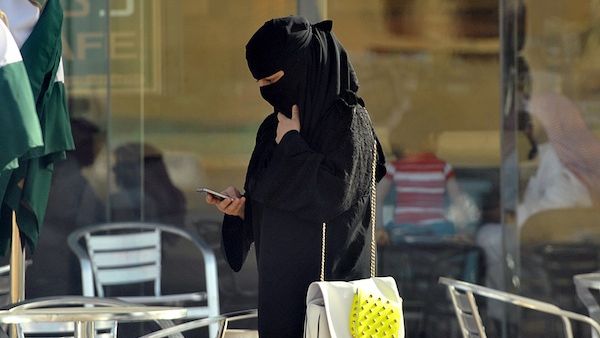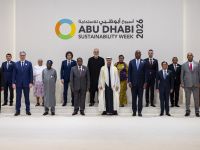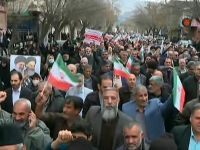This is the first Saturday that Saudi Arabia has taken off, but as the weekend ends tonight the debate about this shift is far from over.
Social media has been the arena of Saudis for and against the change; and while the royal decree says the change has what's best for the people at heart, some religious conservatives are opposing it purely for not wanting to imitate other religions.
The weekend shift, announced in the royal decree last week, came as a government initiative to reap the rewards of an extra day of trading with global markets.
The Saudi financial market, the largest Arab bourse in capitalization, works five days per week but with the previous Thursday and Friday weekend, only three working days matched those of the main global markets.
“It is a decision that took into consideration economic loss resulting from Saudi Arabia not keeping up with the timing of the global financial markets, and so Thursday as a day off was replaced with Saturday, and Friday – the Islamic holy day – remained a holiday,” wrote Saudi columnist Badria al-Bishr.
But the move, which became effective immediately, remains a murky topic of discussion after religious conservatives slammed the weekend shift as an “imitation of Jews” and a move closer to westernization.
In recent months, local Saudi press quoted clerics opposing the move.
Sheikh Saleh Fawzan, a senior cleric in Saudi Arabia, said that such a move would "invoke Allah's wrath" because this is a custom of Jews and Christians; with both religions taking off Saturdays and Sundays as religious weekends.
In a written fatwa, Fawzan said it was forbidden for Muslims to imitate non-Muslims and that it was particularly prohibited to imitate Christians and Jews.
Giving people days off on Saturdays and Sundays is one of the imitations, Fawzan was quoted as saying in April, when the Shura Consultative Council had agreed to study a recommendation to switch the weekend.
“This is a battle between economic and religious institutions,” Saudi writer Omar al-Mudwahi told Al Arabiya English on Saturday.
“Friday is the Muslim prayer day and has been kept as a weekend day. The weekend did not change to Saturday-Sunday to coincide with many of the Group of 20 countries, of which Saudi is a member of. So the royal decree chose the half-way option; not pleasing the economists nor the religious conservatives.”
“Although Fawzan is the religious figure who publically opposed the weekend change, his views represent many within Saudi Arabia’s highest religious committees,” Mudwahi added.
Since the royal decree was issued, those opposing the weekend change have not spoken out, said Mudwahi, although Fawzan is believed to have confirmed his stance on the change to his supporters. In recent months, Fawzan’s supporters launched an online campaign in which religious conservatives circulated an image on Twitter calling for the weekend to not be changed.
The image noted “proof from the Shariah (Islamic law)” that the weekend change was religiously incorrect.
“Fawzan had also rebuffed the need for a change to the weekend due to economic reasons, saying the country’s economy was strong enough already.”
But a senior member of Saudi Arabia’s highest religious committees, Sheikh Abdullah bin Solayman al-Menee, came out saying the weekend change does not clash with Islamic teachings. Mudwahi noted Menee is also a member of the Shariah board for Saudi banking.
Nevertheless, despite the backlash from religious conservatives, Saudi sociologist Khalid al-Dakhil said their arguments do not enjoy much support.
“In terms of religious opposition, yes there might be some, but there’s absolutely no unanimity in opposing this course among religious people,” Dakhil told Reuters.
Meanwhile, others in the kingdom sought to crack a joke or two about the change. In recent days, a popular joke doing the rounds on social media questioned whether Saudis should “pray Friday prayers on a Saturday?” noted Bishr.
Other jokes, not related to religion, include a mention of Saudis now starting their “week-long diets” on a Sunday, not a Saturday, tweeted Saudi Twitter user @Ladyroooooz .
According to Mudwahi, it’s inevitable that Saudis will use irony to discuss the weekend change as the general public was never consulted or polled about their thoughts on it.
“Especially ironic jokes on people who had their weddings booked months in advance on a Saturday – at a lower rate because it was a weekday. Now they may have to pay more because Saturday is a day off,” Mudwahi added.
While the decision took effect in ministries and government departments from this week, the new weekend will be implemented at schools and universities from the start of the next academic year.
Among the benefits, the weekend change has brought the kingdom in line with the remaining Gulf countries.
Abandoning the Thursday-Friday holiday, according to the decree, was made to better serve “the Saudi economy and its international commitments” and coordinate with the working days in Saudi Arabia and the rest of the world.
It will “reduce the negative repercussions on economic and financial activity in the kingdom and make up for lost economic opportunities,” the statement added.
Nasser Saidi, former Lebanese economic minister and former chief economist at the Dubai International Financial Center, forecasts a positive economic impact from the move.
“This is a welcome and long-overdue reform that will boost activity for business,” he told Al Arabiya last week, after the decision was announced.
“The energy market on which the Saudi economy is highly dependent does not shut down and neither should Saudi Arabia.”
Saidi pointed out that the move gives a 20 percent increase in common working time with most international markets.
“By reducing transaction costs, increasing and standardizing market and economic opening times with the rest of the world, it will mean more trade in goods and services and investment,” he said.
Indeed, on Saturday the new weekend was welcomed by economists and journalists tracking stocks.
Dubai-based financial journalist Gérard Al-Fil tweeted: “Imagine it is Saturday and the @SSE_Tadawul market remains closed. It is real! Thanks to King Abdullah for the new #Saudi weekend rule."









